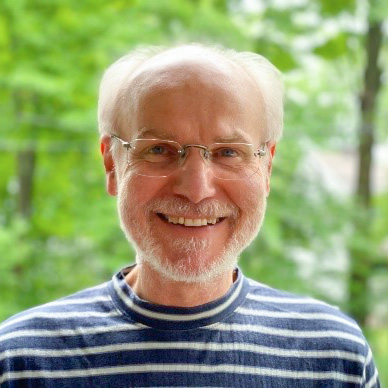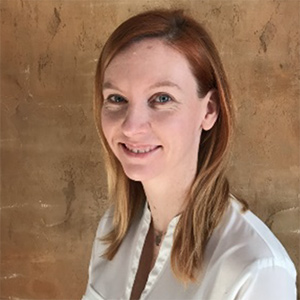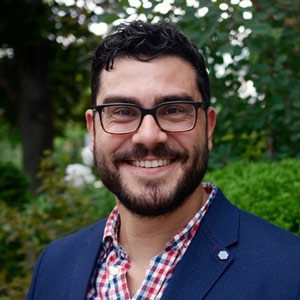
André Corriveau
Consultant, Health Services Delivery and Public Health; Adjunct Professor, Faculty of Medicine, University of Calgary
Dr. André Corriveau’s career in public health has included a number of leadership roles across the north. He served as the chief public health officer for the Government of the Northwest Territories from October 1997 to February 2009 and from June 2012 to August 2018. He was also the chief medical officer of health for the Government of Alberta from 2009 to2012, a family physician and director of professional services for the Inuulitsivik Health Centre in Nunavik, Quebec from 1986 to 1994. In addition to this, Dr. Corriveau served as a regional medical officer of health in Nova Scotia.
Dr. Corriveau is a graduate of the Faculty of Medicine at McGill University. He holds an M.B.A. from Laval University and a fellowship in Public Health and Preventive Medicine from the Royal College of Physicians and Surgeons of Canada. He is also an adjunct professor with the Faculty of Medicine of the University of Calgary. Dr. Corriveau has served on a wide range of advisory boards, working groups and committees, both nationally and internationally. He currently serves on the Board for the Canadian Partnership against Cancer and is a Canadian representative on the Arctic Human Health Expert Group, a body of the Arctic Council.

Steve E. Hrudey
Professor Emeritus, Analytical and Environmental Toxicology, Faculty of Medicine & Dentistry, University of Alberta
Dr. Hrudey, CM, AOE, FRSC, FSRA, IWAF, FCAE, FEC, FGC (Hon), DSc (Hon), Ph.D., DSc (Eng), P.Eng is a professor emeritus in the Faculty of Medicine and Dentistry at the University of Alberta. He was the 97th president of the Association of Professional Engineers and Geoscientists of Alberta (APEGA) in 2016-17. He has served on 28 expert panels dealing with high-profile environmental health issues, including the Walkerton Inquiry (2000-2002), the Expert Panel on Safe Drinking Water for First Nations in Canada (2006) and Chair of the Water Research Foundation Expert Panel on drinking water disinfection by-products and bladder cancer (Washington, D.C., 2014-2015). In 2017, he provided evidence for Water New Zealand to the national government inquiry into the fatal August 2016 North Havelock drinking water outbreak.
Dr. Hrudey has been engaged in environmental and public health risk research for 49 years and has published extensively (>180 refereed journal articles, 26 expert panel reports, ten books, 29 book chapters, 20 commentaries, and over 80 conference proceedings) in this field. His co-authored 2004 book, Safe Drinking Water – Lessons from Recent Outbreaks in Affluent Nations, has been an all-time best seller for International Water Association Publishing.
Dr. Hrudey was recognized with Alberta’s highest civilian honour, the Alberta Order of Excellence, in October 2017. He was elected as a Member of the Order of Canada in 2020. He was also recognized with a Queen Elizabeth II Diamond Jubilee Medal from the Royal Society of Canada for service to scholarship in science, the 2013 APEGA Research Excellence Summit Award, the top research award (2012 A.P. Black Award) of the American Water Works Association and an honorary D.Sc. from the University of Alberta (2012). He is a fellow of several academic and professional organizations, including the National Academy of Sciences of the Royal Society of Canada, the Society for Risk Analysis, the Canadian Academy of Engineering, the International Water Association and Engineers Canada.

Judith L. Isaac-Renton
Professor Emerita, Department of Pathology and Laboratory Medicine, Faculty of Medicine, University of British Columbia
Professor Emerita, Department of Pathology and Laboratory Medicine, Faculty of Medicine, University of British Columbia
As a medical microbiologist, Dr. Isaac-Renton’s interest has been in public health and communicable diseases, particularly in safe drinking water and environmental health. She is committed to laboratory quality management systems, system-level improvements and innovations for continuous improvements in the public health practice of laboratory medicine.
In addition to her academic contributions, activity in medical practice (tropical disease and parasitology) and various administrative roles, Dr. Isaac-Renton was medical head of the British Columbia Public Health Laboratory for three 5-year terms. Her career has included executive leadership positions in the Canadian Public Health Laboratory Network and the Vancouver Health Sciences Centre. For ten years, Dr. Isaac-Renton was co-founder and medical public health lead for the British Columbia Provincial Infection Control Network. She graduated after retirement as a member of British Columbia’s first cohort of medical quality specialists.

Patrick Levallois
Professor, Université Laval; Medical Advisor, Institut national de santé publique du Québec
Dr. Patrick Levallois, M.D., M.Sc., FRCP(C) is a full clinical professor at Université Laval. He is a medical specialist in preventive medicine and public health. He is also a medical advisor at Institut national de santé publique du Québec (INSPQ), where he coordinates the Water Scientific Group and advises various government bodies and public health units.
Dr. Levallois has worked for more than 30 years on issues related to drinking water and health. He was a tenured professor at Laval until 2017, where he taught epidemiology and environmental health and led several important research projects on drinking water quality and health impacts. His work is focused primarily on chemical quality (disinfection by-products, nitrates, arsenic, etc.) and microbiological quality related to farming activities and climate change.
Dr. Levallois has worked and conducted research mainly in Québec, but has developed important international links with U.S. and European partners, researchers and public health officers. Together with Cristina M. Villanueva from the Centre for Research in Environmental Epidemiology in Barcelona, he organized an international symposium on “Exposure and health effects of chemicals in drinking water.” Dr. Levallois has published more than 100 papers in scientific journals and was recently co-editor of a special issue of the International Journal of Environmental Research and Public Health on drinking water quality and human health.

Wendy Pons
Professor, Bachelor of Environmental Health, Conestoga College; Adjunct Professor, Mathematics and Statistics, York University
Dr. Pons is a full-time professor at Conestoga College in the Bachelor of Environmental Public Health Program in Ontario. Much of her research has been related to small drinking water systems, risk assessment, vector-borne disease, climate change and food safety and focuses on the application of research into health professional practice. Dr. Pons has 15 years of experience in a local health department in Ontario overseeing programs in vector-borne disease, food safety and health hazards. She holds a Ph.D. in epidemiology, a master’s degree in environmental science and management, and is a certified public health inspector.

Jacob Shelley
Assistant Professor, Faculty of Law, School of Health Studies and Schulich Interfaculty Program in Public Health, Western University
Dr. Jacob Shelley joined Western University’s Faculty of Law in 2015. He holds a joint appointment with the Faculty of Law and the School of Health Studies in the Faculty of Health Sciences, holds a cross-appointment to the Schulich Interfaculty Program in Public Health, and is Associate Faculty with the Rotman Institute of Philosophy. Dr. Shelley is co-director of the Health Ethics, Law & Policy (HELP) Lab at Western. He has a doctorate in law (SJD) from the University of Toronto, where he was a Vanier Fellow with the Canadian Institutes of Health Research. His doctoral thesis, under the supervision of Trudo Lemmens, examined the use of private law in obesity prevention, specifically looking at the use of product liability law to require food manufacturers to warn consumers about the dangers inherent in their food products. Dr. Shelley obtained his LLB (2007) and LLM (2009) from the University of Alberta, and he holds an MTS from Conrad Grebel University College (2006). His primary area of interest is the proper limits and role of law in promoting public health and preventing chronic disease. He is generally interested in issues that arise at the interface of law, health science, and ethics.

Diego Silva
Lecturer, University of Sydney (Australia)
Dr. Diego Silva is a lecturer in bioethics at the University of Sydney, Australia. His research investigates the values and concepts intersecting ethics, politics and public health ― particularly infectious diseases such as tuberculosis, pandemic influenza and COVID-19 ― from both philosophical and policy perspectives. In particular, Dr. Silva is interested in how liberal and democratic theory applies in the context of infectious diseases, including questions related to health security.
Dr. Silva has an M.A. in philosophy and Ph.D. in public health, both from the University of Toronto. He was an assistant professor at Simon Fraser University from 2015 to 2019 before moving to Australia. He has been a member of the Public Health Ethics Consultative Group at the Public Health Agency of Canada since 2017. Dr. Silva also worked with the World Health Organization on several projects related to public health ethics, most notably as co-author and co-editor of the WHO’s Ethics Guidance for the Implementation of the End Tuberculosis Strategy. In 2016, Dr. Silva was awarded the Mark S. Ehrenreich Prize in Healthcare Ethics Research by the International Association of Bioethics and the University of Southern California.

James Talbot
Adjunct Professor, School of Public Health, University of Alberta; Expert Advisor to the Alberta Chief Medical Officer of Health
Dr. James Talbot holds a B.Sc. (1st class Honours) and Ph.D. from the University of Alberta, and an M.D. from the University of Toronto. He is a fellow of the Royal College of Physicians and Surgeons in Medical Microbiology. In previous roles, Dr. Talbot served as director of the Provincial Laboratory for Public Health (Edmonton), medical officer of health (Edmonton and area) for Alberta Health Services, chief medical officer of health for Nunavut and deputy and chief medical officer of Health for Alberta. Dr. Talbot is currently an adjunct professor for the School of Public Health at the University of Alberta and an expert Advisor for Deena Hinshaw, Alberta’s chief medical officer of health on COVID-19 laboratory testing and surveillance. His research and teaching interests are in using surveillance and epidemiology to provide the evidence needed to guide actions to prevent or mitigate disease or injury.


